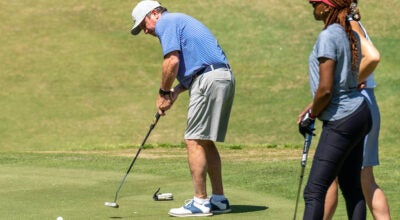Profile: Heroes of the deep
Published 2:02 pm Wednesday, March 6, 2013
Barnett, who fills the role of a strong leader with his shaved head and cleft chin, said he has to be careful with the team members, because they won’t always say they need to talk through recovering victims.
“Really and truly, with the things I’ve been through, most of the ‘macho’ personalities really don’t last in this,” Barnett said. “There is that aspect of ‘macho,’ but most realize ‘macho’ only goes so far, and it really doesn’t help you anymore. The quicker you learn that, the quicker you get better or realize these things and are able to handle things a little better.”
The experience of recovering a drowning victim differs greatly from that of recovering a victim on land, Barnett said.
“When you see victims (on land), you can kind of step back and get an overview and see what you’re dealing with. In the water, you can’t see anything at all hardly or a few inches,” he added. “You don’t know what you’re coming across. It is a different emotion.
“And then dealing with children, it’s a whole different ballgame there. In a sense, you’re hoping you can find them because you want to get the child out, even if it’s two days later. At the same time, you’re not wanting to be the one because you don’t know what to expect,” Barnett said.
When recovering a victim, Barnett said he feels mixed emotions.
“The mixed feeling to me is you feel good about locating the victim, but at the same time you feel guilty about feeling good about it,” Barnett said. “The way I’ve worked it out in my head is that you should feel good about doing something. You just gave this family closure. You shouldn’t feel guilty about feeling like you did something good.”









